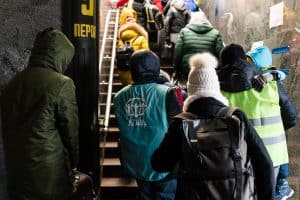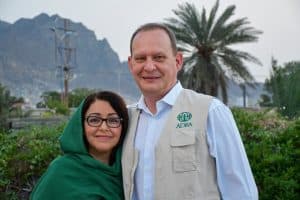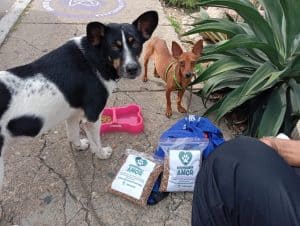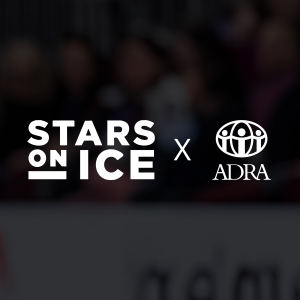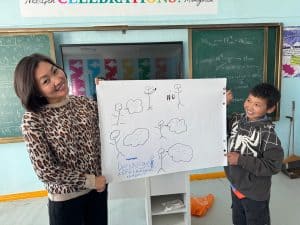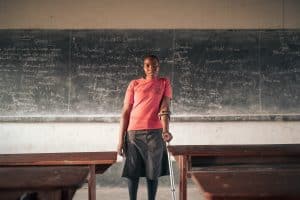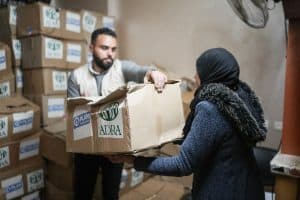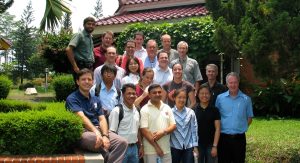Each year on World Refugee Day, we pause to honor the courage and resilience of refugees and displaced people around the globe. For the Adventist Development and Relief Agency (ADRA), this day is more than symbolic—it’s a reflection of our mission. Around the world, our teams stand with communities uprooted by conflict, crisis, and climate, offering food, shelter, healthcare, and hope.
To mark this day, we sat down with Helena Souders, senior program manager for ADRA International who has spent years working directly with displaced populations. Her words remind us that behind every statistic is a story—and behind every story, a person who deserves dignity and compassion.
An Interview with Helena Souders, Senior Program Manager for ADRA International
Q: Can you describe a moment in your work with ADRA that deeply moved you or changed the way you see refugees and displaced people?
A: I met a woman in Boa Vista, Brazil, near the Venezuelan border. She was holding a baby, and I congratulated her—only to learn that the child was her niece. Her own baby had died just two months earlier in Venezuela because the hospital had no electricity to power the incubators. That moment brought the refugee crisis into sharp, personal focus for me. What we take for granted—like electricity and healthcare—can mean life or death elsewhere.
Q: What do you wish more people understood about the refugee experience?
A: That it could happen to any of us. Nothing in life is guaranteed—not even the geopolitical stability we often take for granted. Refugees are people just like us. They want the same things: safety, a future for their children, food on the table, and a roof over their heads.
Q: How does ADRA support refugees in the communities you’ve worked with?
A: ADRA meets practical needs first—providing basic healthcare services where systems are overwhelmed or inaccessible, and delivering food where families have none. What makes ADRA unique is that we don’t just respond—we stay and walk alongside communities with compassion and long-term support.
Q: What is one of the biggest challenges you’ve faced, and how did ADRA respond?
A: Refugee crises often become “protracted emergencies.” Years pass, but the displacement continues. This creates donor fatigue, making it hard to sustain relief efforts. ADRA works tirelessly to maintain support and resources, even when media attention fades. That’s where long-term commitment and partnerships matter.
Q: How does your faith influence your work?
A: My faith sustains me. Without my belief in a loving, everlasting God, I might not have had the strength to keep going. Humanitarian work can be heavy—but God energizes me to keep speaking for the voiceless and serving others with all I have.
Q: You’re featured in the Strangers Among You documentary. What does that mean to you?
A: It’s humbling. The film invites people to step into a reality they may not understand—but could face themselves one day. If I can help people cultivate empathy through this story, then I’ve done something meaningful.
Q: What message do you want to share on World Refugee Day?
A: People are people—everywhere. We all want peace, safety, and joy for our children. Let’s build a world where no one feels like a stranger.
A Moment That Changed Everything: Helena’s Story from the Border
It’s hot, it’s muggy, and the sun is blazing overhead. I’m in Boa Vista, in northern Brazil near the Venezuelan border—a region deep in the Amazon. Though this is essentially a refugee camp, political sensitivities prevent it from being officially called one. Here, the Brazilian government has launched Operação Acolhida—Operation Welcome—to assist Venezuelan migrants fleeing economic collapse and insecurity.
As part of this operation, families arrive to large tents where they receive vaccinations, food, and paperwork support from UN staff. When I visited in 2018, temporary camps provided basic shelter for the most vulnerable.
On one particularly sweltering day, I saw a young woman holding a newborn. I sat beside her and offered congratulations. Her expression changed instantly—from joy to sorrow—as she gently explained that the child was her niece. Her own baby had died just two months earlier in Venezuela. Born prematurely, her daughter needed an incubator. But the hospital had no electricity. No power. No second chances.
That moment hit me like nothing else in my years with ADRA. It was a raw and painful reminder of what it means to lose the most basic necessities—things we take for granted like stable electricity, medical care, and safety. Venezuela, once one of the most prosperous countries in the hemisphere, had become a place where infants died simply because the lights wouldn’t turn on.
I sat there in silence, shaken. I prayed—for her, for her family, and for the strength to keep doing this work. Because alleviating human suffering should never be controversial. It should be a calling we all feel deeply, a desire to offer even the smallest act of compassion to those whose burdens are heavier than our own.
This moment is why I serve. This is why I work at ADRA. I’m grateful that God has led me into a life where I can walk alongside people in their darkest hours. At ADRA, we are committed to serving humanity so all may live as God intended—with dignity, hope, and love.
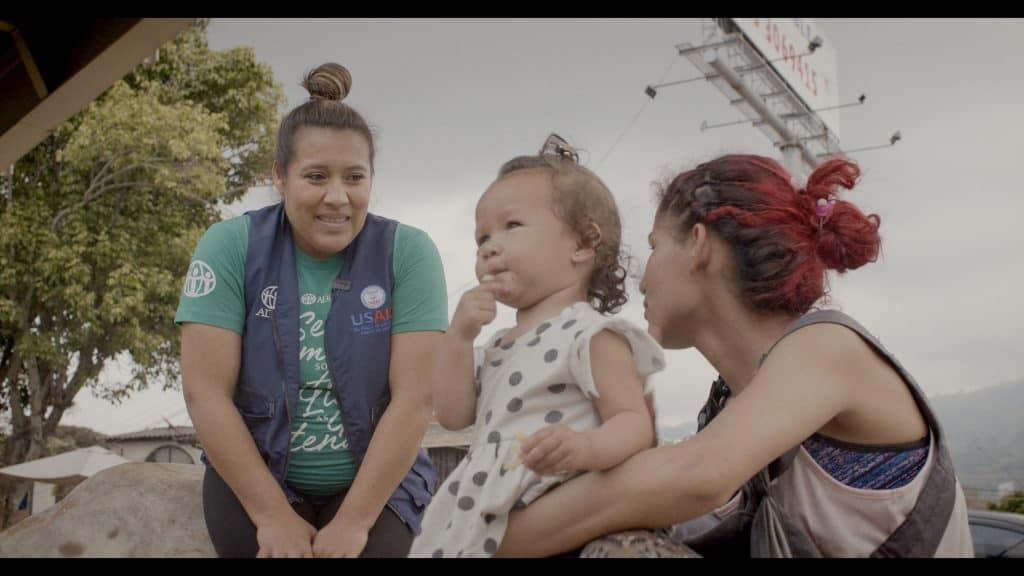
A Final Word on World Refugee Day
At ADRA, we believe no one should be forgotten or unseen—especially in times of crisis. Refugees are not just headlines. They are mothers, fathers, teachers, children, and neighbors. On this World Refugee Day, we invite you to see them, hear their stories, and stand with them.
Helena Souders’ journey is one of many featured in ADRA’s new documentary, Strangers Among You. This powerful film spans five countries, bringing to light the lived experiences of displaced people—and the love that meets them there.
👉 Watch the trailer and learn more at ADRA.org/StrangersAmongYou
